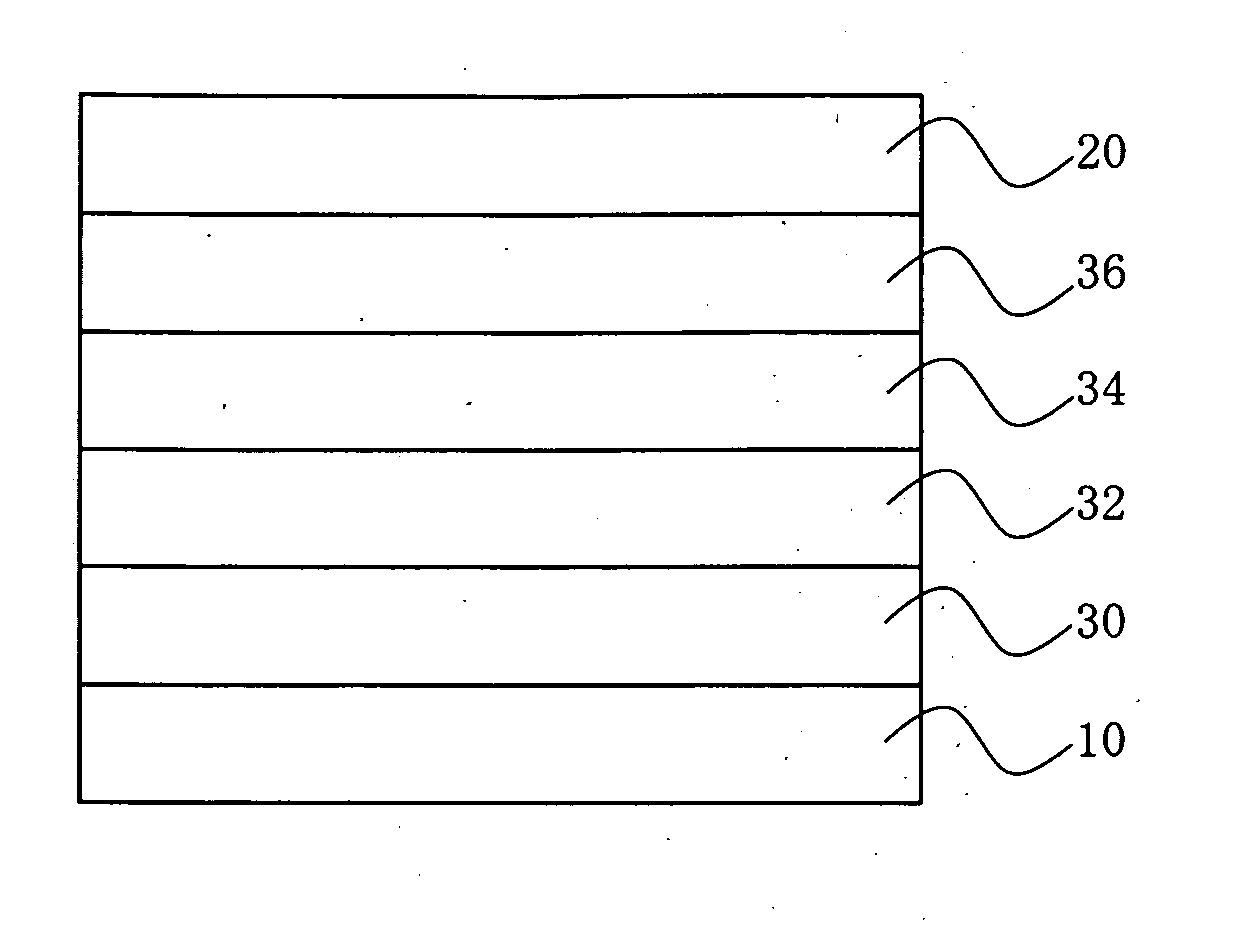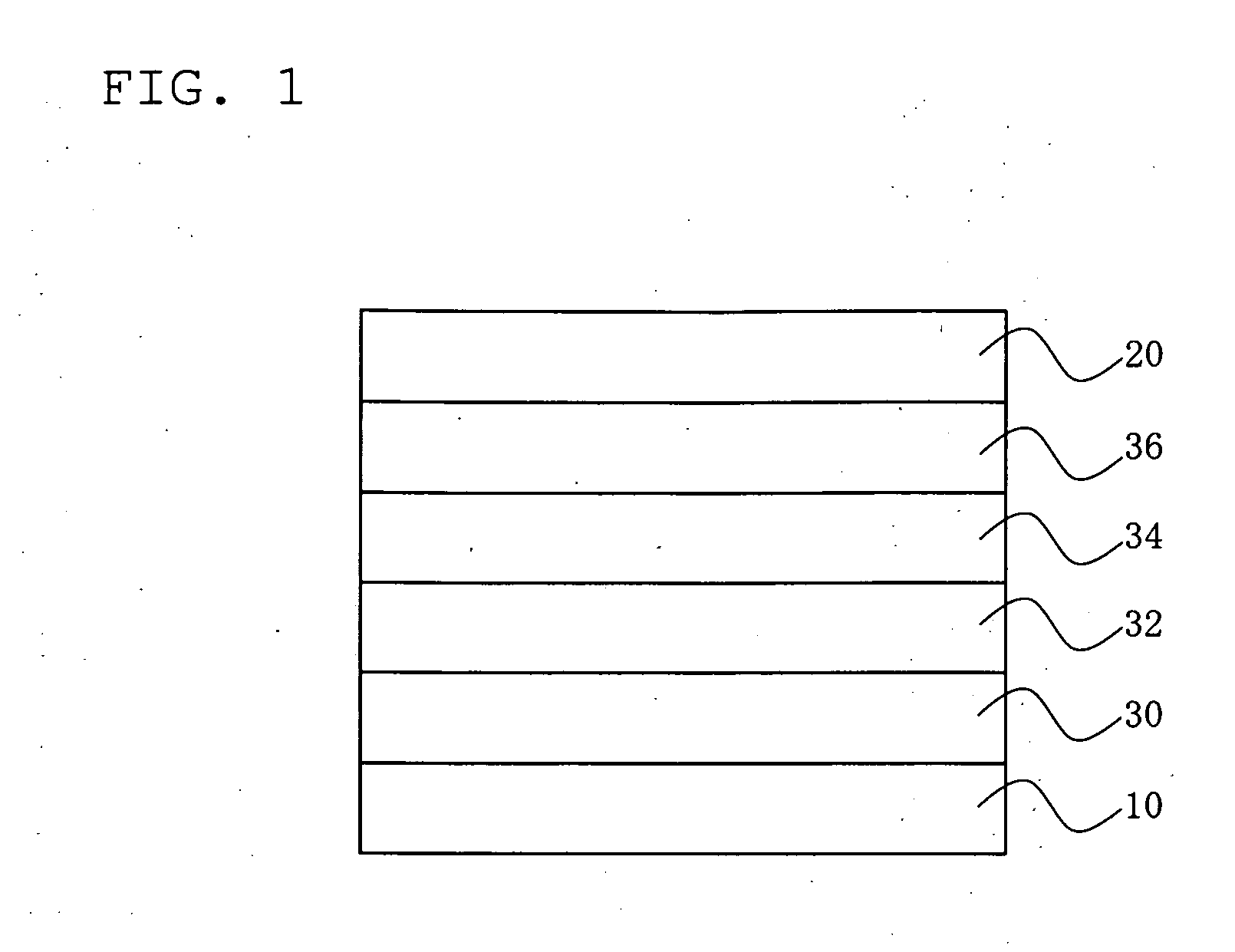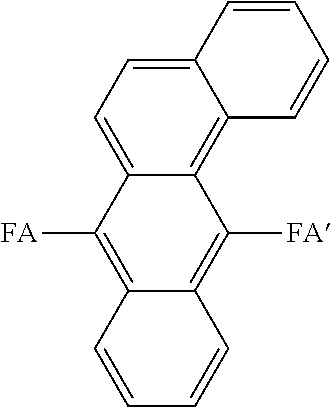Benzanthracene compound and organic electroluminescent device using the same
a technology of organic electroluminescent devices and benzanthracene derivatives, which is applied in the direction of luminescent compositions, organic chemistry, thermoelectric devices, etc., can solve the problems of short half life of organic el devices using these benzanthracene derivatives and inferior chromaticity, and achieve superior chromaticity and half life
- Summary
- Abstract
- Description
- Claims
- Application Information
AI Technical Summary
Benefits of technology
Problems solved by technology
Method used
Image
Examples
example 1
(1) Synthesis of Benzanthracene Compound
[0135]
[0136]To a 1 litter four-necked flask, 22.7 g (80.9 mmol) of 1-bromopyrene was placed. The pressure was reduced and then returned with argon gas. This was repeated three times to substitute the atmosphere in the system with argon. Then, 120 ml of dried tetrahydrofuran was added thereto and completely dissolved with stirring. Subsequently, the solution was cooled to about −65° C. in a dry ice / acetone bath, and 52 ml (80.9 mmol) of a solution of 1.57M n-butyllithium in hexane was dropwise added over about 20 minutes. The reaction was continued at −65° C. for 2 hours, and then, a solution of 9.5 g (36.8 mmol) of benzanthraquinone in 300 ml of dried tetrahydrofuran was dropwise added over one hour. Subsequently, the reaction was continued at −65° C. for about 2 hours. After the reaction mixture was heated to room temperature, the reaction was continued for 2 hours. Next day, 100 ml of a 1N hydrochloride was added thereto to terminate the rea...
examples 2 to 36
[0143]A device was fabricated and evaluated in the same manner as in Example 1 except that H-1 and / or D-1 were replaced with the compounds indicated in Table 1. The results are shown in Tables 1 and 2.
[0144]Here, synthesis of benzanthracene compounds were conducted according to the synthesis routes (2) to (4).
FA and FA′: aryl groups such as fused rings
X: halogen
PUM
| Property | Measurement | Unit |
|---|---|---|
| transparent | aaaaa | aaaaa |
| work function | aaaaa | aaaaa |
| transmittance | aaaaa | aaaaa |
Abstract
Description
Claims
Application Information
 Login to View More
Login to View More - R&D
- Intellectual Property
- Life Sciences
- Materials
- Tech Scout
- Unparalleled Data Quality
- Higher Quality Content
- 60% Fewer Hallucinations
Browse by: Latest US Patents, China's latest patents, Technical Efficacy Thesaurus, Application Domain, Technology Topic, Popular Technical Reports.
© 2025 PatSnap. All rights reserved.Legal|Privacy policy|Modern Slavery Act Transparency Statement|Sitemap|About US| Contact US: help@patsnap.com



